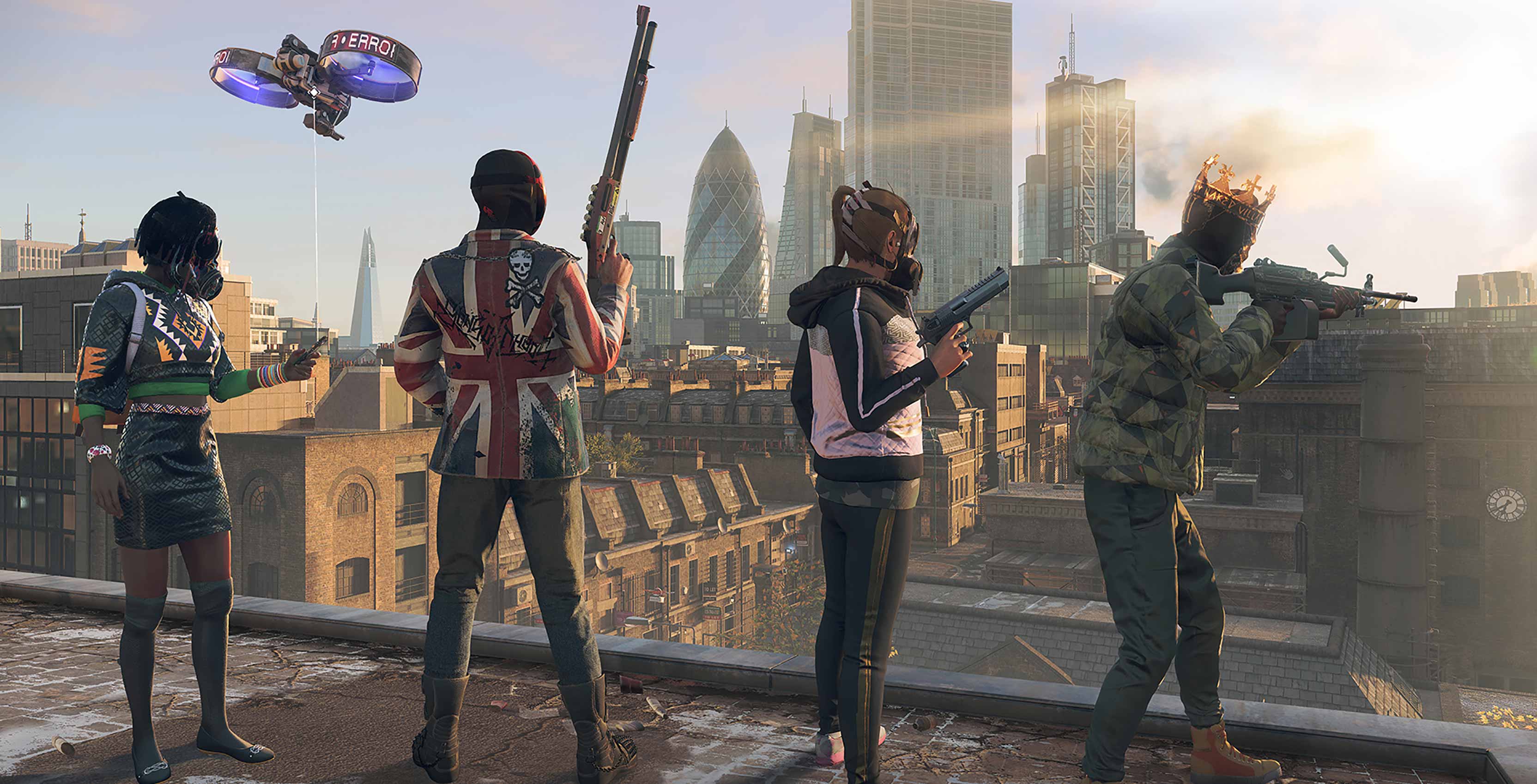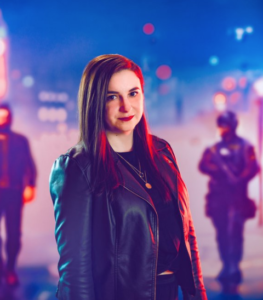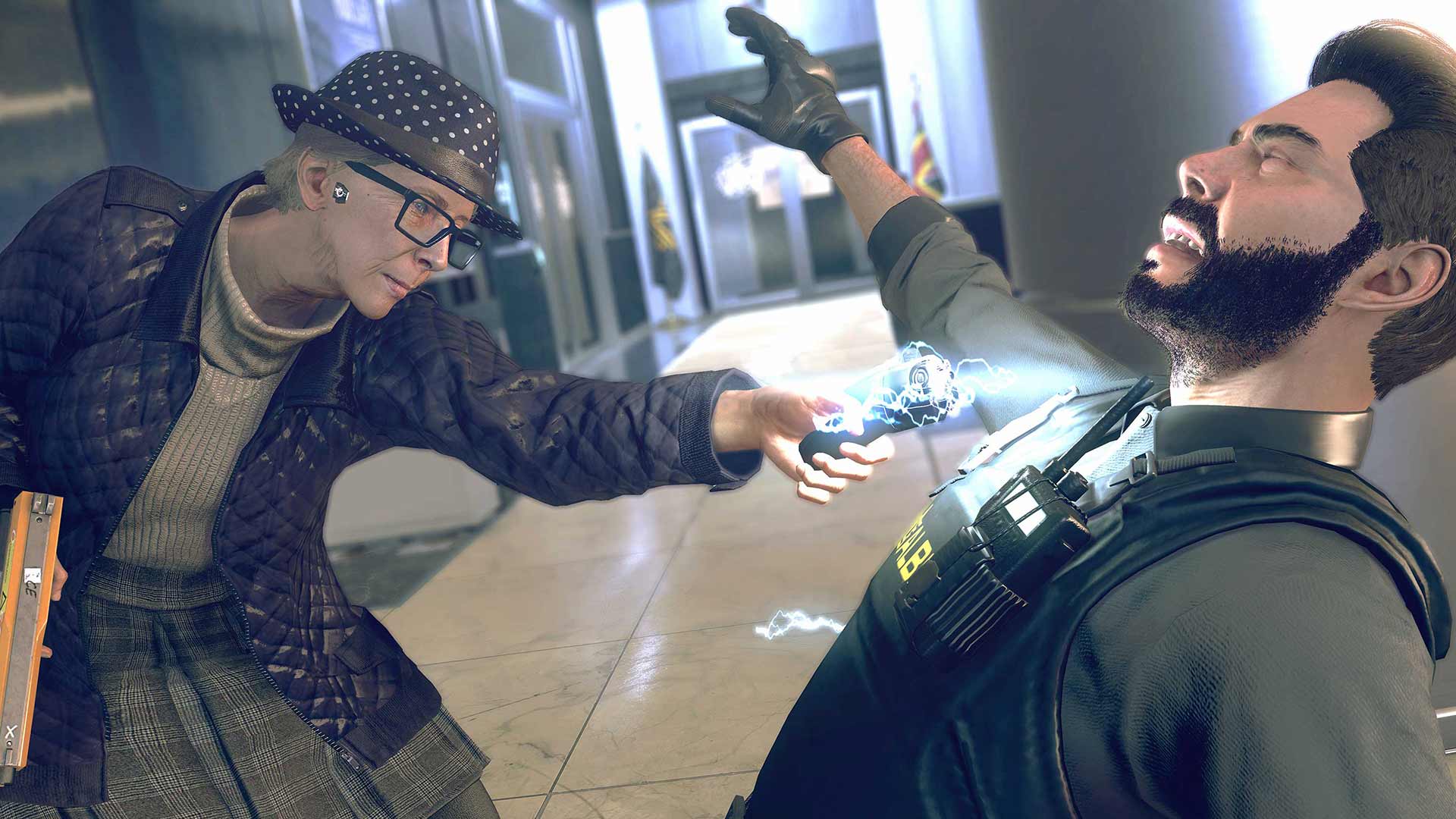
When Ubisoft Toronto unveiled Watch Dogs: Legion at E3 2019, the game took many by surprise due to its core gameplay feature of being able to play as any non-player character (NPC).
It’s an appropriate mechanic, to be sure, given the open-world hacking game’s central premise of Londoners banding together to take down an authoritarian government.
But it’s also one that’s incredibly ambitious. Beyond all of the back-end technical hiccups to sort out, being able to play as anyone also opens up all kinds of narrative challenges. Namely, how do you approach a story in which the star is constantly changing?
According to Kaitlin Tremblay, lead narrative designer on Watch Dogs: Legion, the goal of wanting to explore a near-future high-tech London naturally fed into the creation of the game’s expansive roster of characters.
“Our general idea is that we’re looking at the way London is kind of a consequence of various things  happening right now, like automation and emerging technology and private military cooperation — there are lots of little pieces that kind of contribute to the overall state of a city,” Tremblay told MobileSyrup at the recent EGLX event in Toronto.
happening right now, like automation and emerging technology and private military cooperation — there are lots of little pieces that kind of contribute to the overall state of a city,” Tremblay told MobileSyrup at the recent EGLX event in Toronto.
“And so with our human storylines, we wanted to kind of drill down into different aspects to give each theme a proper due and really like flesh out how these things take root in but also with people will respond to them as well.”
Legion also builds on one of the most interesting bits of worldbuilding in the previous Watch Dogs games, which was the ability to hack an NPC’s phone to read up on their age, occupation and income. With NPCs now actually playable, players might naturally expect more fleshed-out backstories. While it would be impossible to have fully-fleshed out backstories that account for a virtually endless number of NPCs, Tremblay says the team collaborated closely for as much variety as possible.
“We approached this idea play as anyone as people are composited of different pieces of themselves. So we often had to talk about what makes up a person and look at these differently, almost like a matrix of what a person is,” explains Tremblay.
“Then we use that to help guide how we’re creating and writing stories for players within what we can reasonably produce. It’s a collaborative effort with a really incredible team just kind of filling in all these pieces in order to make these characters fun and real people. Because they are [real], right? You can make any character the hero of your story.”
Tremblay says characters are further fleshed out through their connection to the world and other people in it, as well as how the player chooses to interact with everything.
“Players will have different experiences and their experience with the story will change depending on who you’re playing as in terms of that character’s sensibilities, that perspective and how they kind of behave within this world,” she says.
“Characters will [also] have varying levels of relationship with different people depending on who they are. Who they’re related to, what those relations are and how many they have is unique to that character.”
Above all else, Tremblay says this varied, branching approach is especially exciting since it lets the team put a spotlight on all kinds of characters, especially those who normally wouldn’t be featured in a game. For instance, she points to the most standout character from Legion‘s E3 debut — an elderly hacker named Helen.
“I’m trying to not play favourites, but I do want to play favourites. I love the granny, but we also have a grandpa and I feel like he’s not getting as much love,” she says with a laugh.
“And so I really love that. There are characters in the world that have a reason to kind of join this resistance and that they’re not people that you necessarily would expect to be these heroes. But everybody does have a reason to want to engage. Taking unconventional people like a grandmother or a grandfather and putting them into this game is actually what’s really interesting for me as a writer, because it’s a story that’s really interesting and worth telling and we don’t [normally] get a chance to tell.”
Watch Dogs: Legion is set to release sometime between April 2020 and March 2021 on PlayStation 4, Xbox One, PC and Google Stadia.
Image credit: Ubisoft, Ubisoft Toronto
MobileSyrup may earn a commission from purchases made via our links, which helps fund the journalism we provide free on our website. These links do not influence our editorial content. Support us here.



